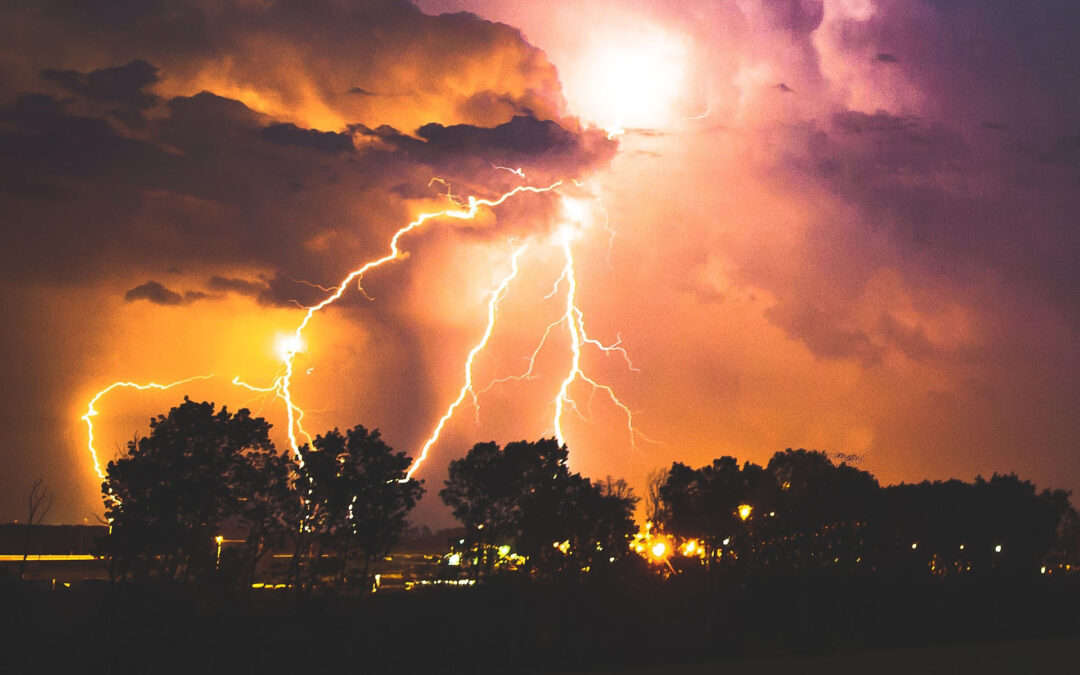Jesus regularly invokes nature in his teaching, drawing us into deeper relationship with the created world. But it’s not just Jesus inviting us to see creation as teacher and kin. The scriptures themselves help us see the important role of the created world in God’s story and saving work. This four-session Bible study explores how biblical stories of the natural world help us to grow our love for and commitment to God, other people and our beloved earth.
January 2024
Weather: Powerful force for change
We can’t control the weather, but we can learn from it. Storms, rain, drought and wind shape the lives of human and non-human beings, both in scripture and today. As we face catastrophic storms and the weird weather of climate change, biblical stories of extraordinary weather convict and humble us. They show us how to live faithfully, moving us to act even when we feel powerless.
February 2024
Creatures: Our siblings in praise and trust
Jesus invites us to consider the birds, but we’ll get to know biblical critters beyond the sparrows. We’ll look at biblical animals (some adorable, some terrifying) from ravens and lions to a big fish, paired creatures on the ark, and that sneaky serpent in Eden. Stories of human and animal interactions in Scripture help to reorient our relationships with the non-human world, while pulling us into deeper trust in God.
March 2024
Rivers: Springs of life and hope
Fresh water. Most of life on our planet depends on it, and the story of God’s saving work flows alongside it, through stories of biblical rivers that offer a vision of flourishing creation. Together we’ll journey from the rivers in Eden to the prophetic springs in the desert, and from Jesus’ baptism at the river Jordan to the crystalline river of life in Revelation. We’ll discover how rivers are sites of healing, restoration, identity and imagination.
April 2024
Food: Daily bread for the health of the world
Most of us hunt, harvest and forage in grocery store aisles. We’ve forgotten the ways our food first comes to us—from fields, flocks, forests and farms. Considering our relationship with creation and our faithful stewardship of the earth means paying attention to the ways we eat. In this final session, we’ll see how stories of food in scripture offer us ways of faithful eating that are responsible, celebratory and delicious. Locust and wild honey, anyone?



How do I sign up for the digital copies of Gather? I do have a subscription but I would like to have it digitally as well? My circle and local ELCA WOMEN does support monetarily quarterly to the Women of the ELCA.
Hi, Judy, Thanks for your message. Print subscribers have free access to Gather’s digital issues. See digital issue FAQs and learn how to create a username and password to access the issues here: https://www.gathermagazine.org/digital-edition/
Will there be a video with the Jan – April lessons?
Hello, Fran. Thank you for your message. We will post the first video supplement for the Bible study in the coming days.
Thanks!
They’ve been a great addition to the studies. F
Here is the link to the video supplement for session one: https://www.gathermagazine.org/winter-spring-2024-scripture-and-nature-teachers-of-faith-bible-study-video-supplement-session-1/
When will the online Session One be available? I meet with Circle study leaders on January 2, 2024, and would like to have it for them ahead of that if possible.
Hello, Deacon Laura, you can access the Bible study via this link: https://www.gathermagazine.org/wp-content/uploads/2023/12/January2024_Gather_Bible_Study_Session_One.pdf
Thank you!
What a great and timely idea. I look forward to reading these.
Interesting that the April 2024 study centers on food. Just participated in watching a film, “Kiss the Ground” outlining how our current concerns regarding climate change and global warming are part of a cycle that has been repeated throughout the millennia
In our quest to provide food for the hungry throughout the world we have created an agricultural system that is actually destroying the soil and the nutrients and pesticides created for violence in war time have been used to boost crop production while depleting the soil.
.